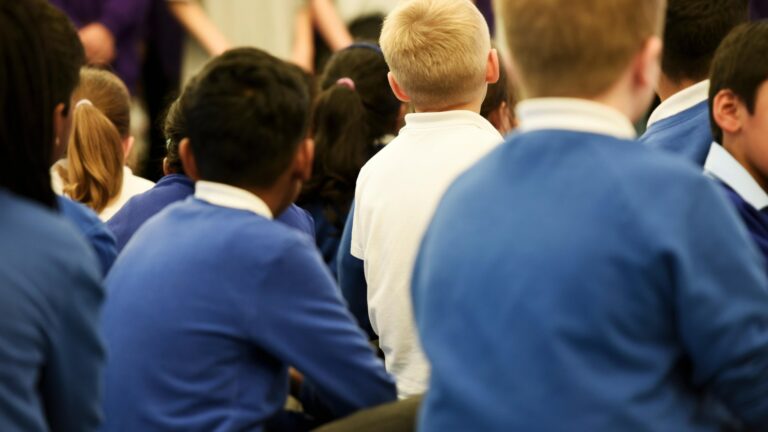150 Schools at Risk of Closure Due to Crumbling Concrete: Worried Parents Await News
Concerned parents are on edge, waiting anxiously to learn whether their children’s schools are among the 150 potentially affected by concrete deterioration, triggering worries of building collapses.
Yesterday, news emerged that these schools could face lockdown as authorities have directed the closure of unsafe structures and classrooms due to the risk of collapse.
Families anticipated receiving notifications about their children’s school situations in the ensuing hours.
Here’s a guide on how to ascertain if your loved ones are impacted and a compilation of schools currently identified for closure.
At present, the government remains reluctant to disclose the full list of possibly compromised schools, despite growing calls for transparency from ministers.
Parents and schools, nonetheless, have been vocal about the issue. Most families likely have already heard from schools if their children are facing disruptions.
BBC reported that two schools in Bradford, Eldwick Primary School and Crossflatts Primary School, were instructed to close certain sections due to structural concerns.
Bradford Council confirmed that eight teaching spaces spanning both sites were shut down.
Sheffield’s Abbey Lane Primary School is also facing the prospect of an immediate shutdown, given that it was constructed using the problematic concrete material, as per The Star.
Ferryhill School in County Durham is reportedly among those affected.
According to The Independent, parents received an email announcing a delayed start to the new academic year at Ferryhill School, with classes transitioning to online platforms.
Hockley Primary School in Essex informed irate parents that it would not reopen, as reported by Basildon, Canvey, Southend Echo.
Meanwhile, Mistley Norman Church of England Primary School in Essex had been utilizing classrooms at another institution since April due to the crumbling concrete issue, as reported by BBC.
In Essex again, Kingsdown School received the directive to close due to these concerns.
Noteworthy Instances:
- Singlewell Primary School in Kent struggled to ensure safety in the past month, as revealed by The Telegraph.
- Willowbrook Mead Primary Academy in Leicestershire, mentioned by BBC, is also grappling with the issue.
- Metro reported the closure orders for Eldwick Primary School near Leeds and Corpus Christi Catholic School in London.
The alarming revelation of compromised concrete surfaces coincides with the approaching start of the new school term.
Unions have sounded the alarm, suggesting that this might only be the beginning of a larger problem. Hundreds more schools with deteriorating reinforced autoclaved aerated concrete (RAAC) could soon face similar shutdowns.
Simon Allford, president of the Royal Institute of British Architects, expressed deep concern, noting that a staggering 700,000 pupils are receiving education in structures needing significant rebuilding or renovation.
Understanding the Problem: RAAC and its Issues
What is RAAC?
Reinforced autoclaved aerated concrete (RAAC) is a lightweight concrete commonly utilized in roofing, flooring, cladding, and wall construction. It was prevalent in the UK from the mid-1950s until the 1980s. While initially used in public buildings, it has also been found in various private structures.
What’s Wrong with RAAC?
Inspections have revealed that some RAAC planks have defects, which, combined with severe weather, lead to deformation. The condition of these planks deteriorates, eventually causing collapses.

